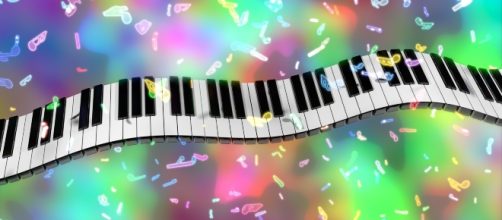The use of electronic instruments and digital technology in music has been around for decades now, and musical styles like techno and house are currently at the top of their popularity. Still, there was always a human touch present, a songwriter, a musician or an engineer behind the creation of musical sounds. Now though, it seems that Artificial Intelligence is slowly taking over the creation of music too. As if that prophecy by "Kraftwerk" way back in the Seventies is coming to life. A big splash was made when it was made last year when AI created a song that sounded like The Beatles.
But the use of AI to create music has been around for a while, and we all heard a piece of music that AI composed and played, without realizing it. Now, it seems that the use of AI in one of the most creative fields will only grow.
Creating a mood is only a start
Abbey Road Studios in London are probably among the best music establishments known. That is where all the big names in today's music recorded something, at least a song. The Beatles practically recorded everything there. Like big shot giants Sony Music and Warner Music Group, these days they too are exploring the possibilities that AI can offer. Under the program named "Abbey Road Red", they have gathered a group of startup companies who work on the development of artificial intelligence to see if there is an answer to the question: can machines make music?
By the developments so far, the answer seems a definitive yes. The number of companies getting involved in this field seems to be growing by the day. Startups like "Jukedeck", "Humtap" and "Groove AI" have already begun to make inroads, but is also the giants that have come up with their own AI music projects. Google has an AI music research project named "Magenta" and Sony Music's AI music project is named "Flow Machines".
The use of AI in music seems to have taken the biggest inroad into a music genre named "production music". It is the type of mood music usually used for movie soundtracks, games, company presentations and personal videos. And a mood is something that a company like Gracenote that specializes in music data knows a lot about.
These days, Gracenote is using AI to determine whether a song is melancholic, uptempo or any other mood you wish. It is all those songs that you can currently hear on "Spotify" or "Apple Music".
Man or machine?
Maybe none of these mentioned projects are too controversial themselves, but a question arises - will AI at some point take over the music world completely, replacing all those human hands and voices that create and play it? "Daddy's Car", the Beatles sounding song created by AI seems to be only a beginning. The man behind that project, Francois Pachet, created the song, along with "The Ballad of Mr. Shadow", a song recreating the sound of famous American composers like George Gershwin and Cole Porter, last year while working at Sony Music.
Now, Pachet is at Spotify, where it seems he's working on creating music for their specific mood playlists, the ones their customers use to relax, work or fall asleep to.
But one question remains open, will AI eventually replace human composers and musicians? It is quite obvious that AI has already entered our lives and that it can help better them. Still, the use of artificial intelligence in creative fields remain controversial. One line of thinking is of the opinion that there are those creative spheres of human lives that should be left to humans only. The others think that it is still quite improbable that machines will be able to fully mimic human emotions and that they will never be able to come up with 'human-like' creative pieces, including musical ones.


